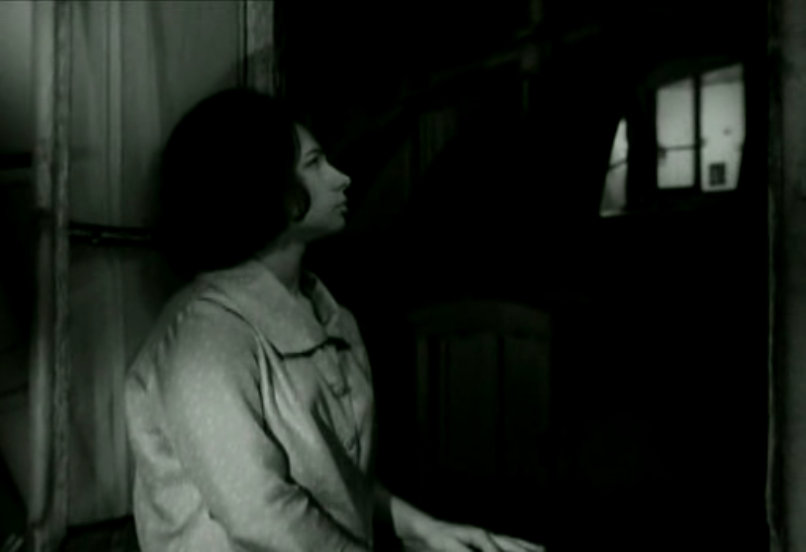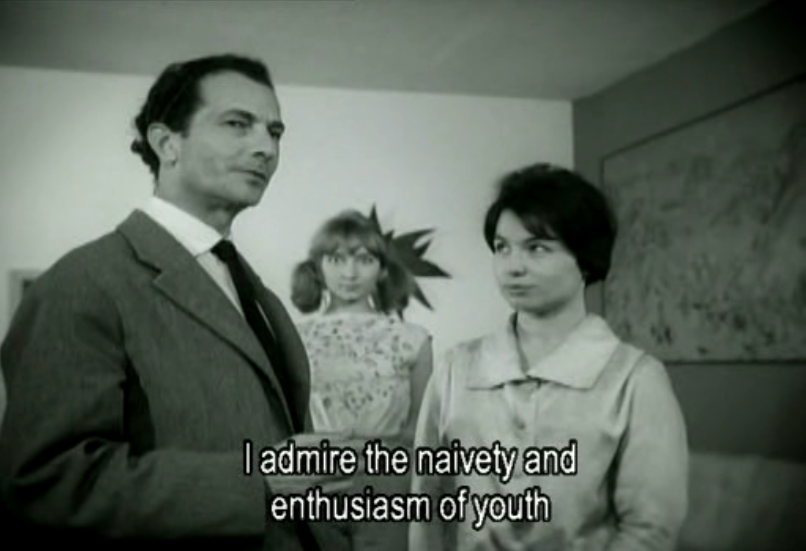If you're looking for further details on the Maya Deren video I just posted on YouTube, here is the blog post mentioned at the end.
Short thoughts on: Fists in the Pocket • Michael Medved • Goodbye, Mr. Chips • Russian Ark • My Night at Maud's • Claire's Knee • Paris Belongs to Us • 2 or 3 Things I Know About Her • Jean-Luc Godard • Europa '51
I've become a broken record on this subject, but I swear that within a few weeks I will have a huge backlog of Monday posts, more than I know what to do with - including a video that relates to the above picture. January is going to be very busy (although the work is mostly done, I'm waiting for other sites to cross-post). Unfortunately at this moment an interview, a guest post, at least four videos, and a podcast appearance are all waiting in the wings rather than in the bag. (That said, I did finally upload the "Cinepoem" video I blogged about back in November.) So I'm turning to one of my old standbys today, the archival of my old IMDb comments, where my online film commentary began. I've done this four times before, each time moving a bit further into the past. Some of these comments are actually almost a decade old, so be advised that they may no longer reflect my opinions (hell, I even left in some of the typos!). In many cases they represent my first engagement with the work in question, as a 23-year-old hungry for as many cinematic experiences as he could devour.
In fact 2006-07 was in many ways a peak viewing period for me; I was falling back into cinephilia after many years of caring more about music than movies. Most of the topics below relate to mid-century European films, particularly French filmmakers like Rohmer, Rivette, and Godard. Some of these films I loved, some I did not, but all of them seemed to me worthy of discussion - and still do. I would like to hear your thoughts as well, if you've seen these films (and if you haven't, I hope this serves as encouragement). Did Fists in the Pocket surprise you? Is Europa '51 too didactic? Does Goodbye Mr. Chips need a stronger narrative throughline? Is Rohmer subtly encouraging us to criticize the protagonist of Claire's Knee? Is Godard an incredibly consistent genius, an emperor with no clothes, or a hit-and-miss experimenter? Let me know what you think, and I'll let you know where I do and don't agree with the old me.
(I originally used a different image, culled from a Wonders in the Dark post several years earlier, but I replaced it with this one in 2017 when I cross-posted that Wonders piece on this site.)







